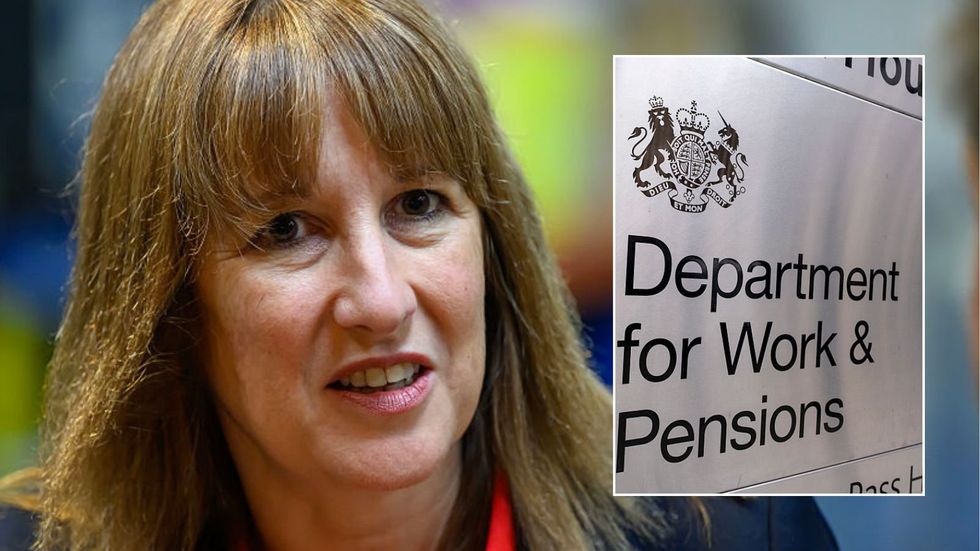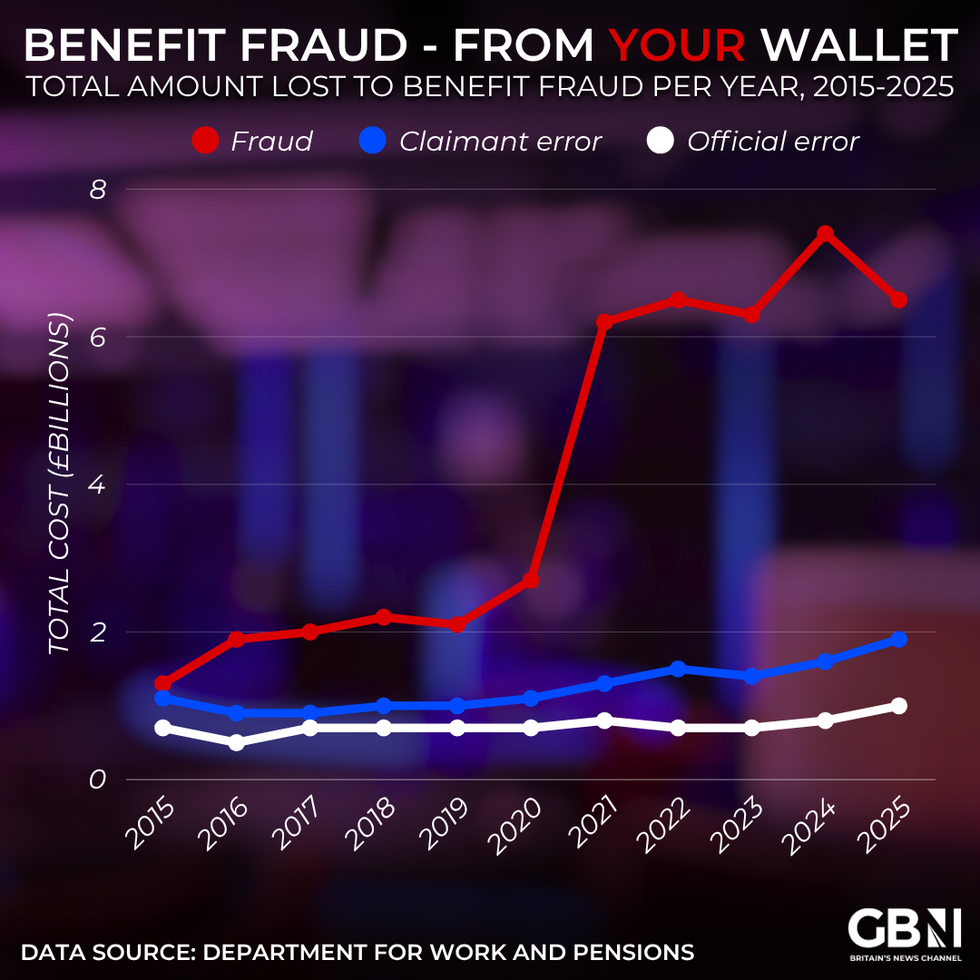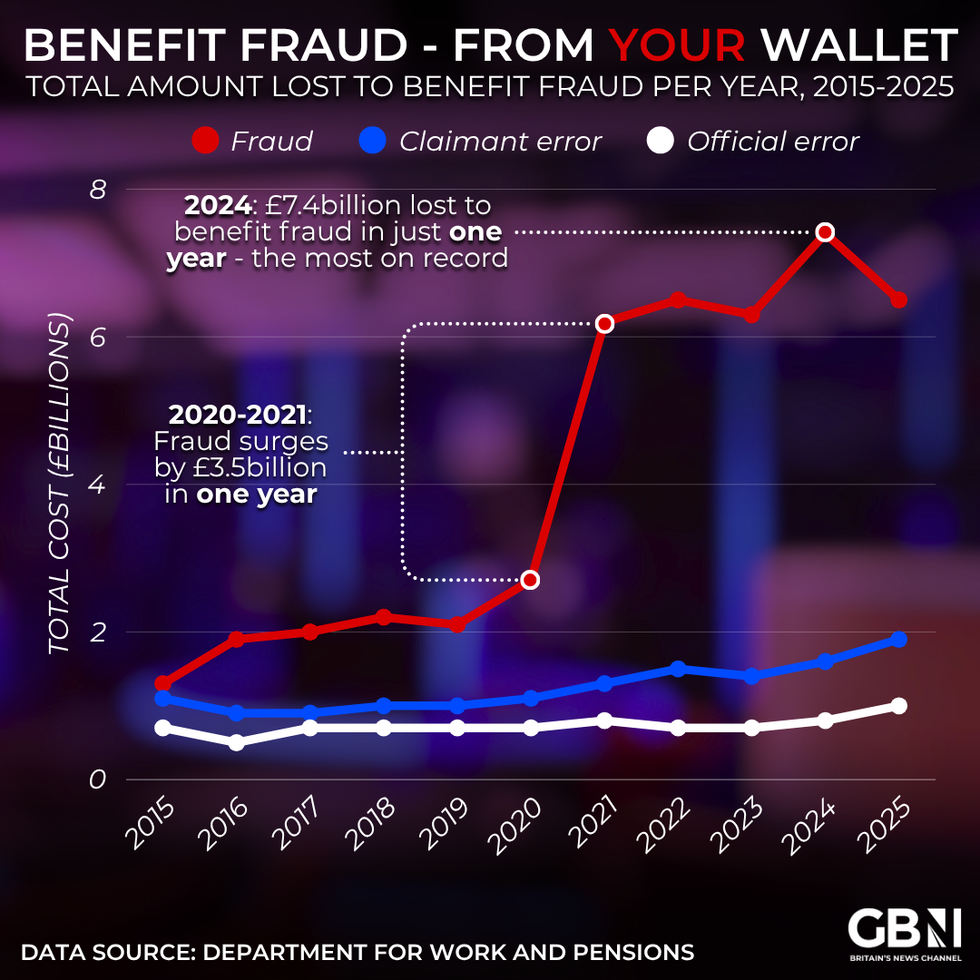Rachel Reeves plots Budget crackdown on DWP fraud as two-child benefit cap to be axed in 'welfare splurge'

GB NEWS

The Chancellor is under fire over DWP welfare spending
Don't Miss
Most Read
Latest
Chancellor Rachel Reeves is understood to be planning a crackdown on fraudulent claims for benefit payments, such as Universal Credit and Personal Independence Payment (PIP), from the Department for Work and Pension (DWP).
The Labour Government's latest attempt to cut spending intends to generate £1.2billion through expanded benefit fraud detection measures as part of the forthcoming Budget.
Despite this, the Chancellor is simultaneously planning to abolish the two-child benefit cap on Universal Credit at an estimated expense exceeding £3billion.
The Treasury will broaden targeted case reviews designed to identify errors within Universal Credit applications, aiming to secure the additional revenue by March 2031.

The Chancellor is plotting a crackdown on DWP fraudsters
|GETTY
Shadow Chancellor Sir Mel Stride has launched a fierce attack on the Government's Budget plans, arguing that Labour is opting to expand welfare spending whilst transferring the financial burden to working people.
Writing in The Daily Telegraph, Mr Stride stated: "Britain is in the grip of a cost of living crisis. People work harder, plan ahead and make tough choices daily."
"In such times, politicians owe them honesty not reckless promises or unfunded spending. Yet that is exactly what Labour looks set to deliver at the Budget: a multibillion-pound welfare splurge funded by stealth taxes on people who are already struggling."
The Shadow Chancellor defended the DWP two-child benefit cap, asserting that maintaining it is both "responsible" and "fair", claiming the Conservatives stand alone in seeking to manage welfare expenditure.
 The amount lost to benefit fraud has surged | GB NEWS
The amount lost to benefit fraud has surged | GB NEWSLast week, Ms Reeves asserted that she was still committed to “reform” of the welfare state despite the Government having to U-turn on key forms earlier this year.
Any changes to the DWP and wider benefit system are unlikely to be implemented until after recommendations from the Labour minister Stephen Timms’s review of disability benefits.
Furthermore, former cabinet minister Alan Milburn is conducting a review of young people who are not in employment, with both reports being due later next year.
Mr Milburn said this weekend there should be "no no-go areas" when it came to reform of the benefits system, and he has previously said the UK cannot afford to back off from changes to welfare.
Concerns have been raised over the growing tax burden placed on working-age people with fiscal drag continuing to penalise taxpayers contributing to the Treasury's coffers.
Speculation continues regarding a potential extension to the current freeze on income tax thresholds, which would result in additional taxpayers entering the system or moving into higher brackets as salaries increase.
Former Chancellor Jeremy Hunt introduced the current freeze to tax allowances which is set to remain in effect until 2028, however reports suggest this could be extended to 2030.
The Liberal Democrats have denounced the potential threshold freeze extension as "rank hypocrisy" and a "stealth tax stitch-up" orchestrated jointly by Labour and the Conservatives.
 Benefit fraud - from your wallet: Total amount lost to benefit fraud per year | GB NEWS
Benefit fraud - from your wallet: Total amount lost to benefit fraud per year | GB NEWSDeputy leader Daisy Cooper warned that prolonging the freeze for two additional years would force another 1.3 million people into paying income tax or higher rates, adding to the 7.7 million already affected by the existing Conservative freeze scheduled to conclude in 2028.
Ms Cooper shared: "A staggering nine million people are now set to be hit by the Conservative-Labour stealth tax stitch-up. Families across the country are fed up with being milked for their hard-earned cash."
Helen Miller, director of the Institute for Fiscal Studies, cautioned that implementing an income tax threshold freeze would "break the letter" of Labour's manifesto commitments, particularly if national insurance thresholds were similarly frozen.
Chancellor Rachel Reeves will give her Budget statement to the House of Commons on Wednesday, November 26.









